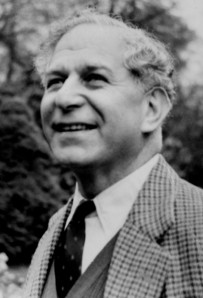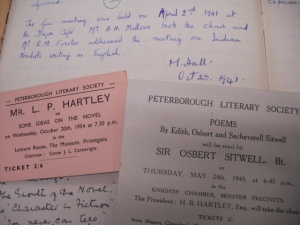This week brings “40 things” to a close. To mark 40 years of the MA in Creative Writing we featured 40 items, with a literary interest, from across our archives and special collections. The range of material that we’ve found has been fascinating.
UEA Archives continues to grow its collections and in this blog series we’ve given you a glimpse of the research materials to be found in our literary collections. It’s an exciting time for us, as in the New Year a group of stakeholders from across all relevant Faculties is being set up to oversee the future directions in which your Archives collections will develop.
To round off, we are featuring a note from a supervisor to his undergraduate student. This neatly written card from Kingsley Amis to Roger Deakin, advises Roger to keep occupied by reading more [Edmund] Spenser – including minor poems.
Deakin took an English BA at Peterhouse, Cambridge (1961-64). Letters and brief scraps of notes give some first-hand insight into his student experience in the early sixties at Peterhouse.
Deakin went on to teach English, and through his love of the outdoors was inspired to write Waterlog: a swimmer’s journey through Britain, and Wildwood: a journey through trees. His notebooks provided the source material for Notes from Walnut Tree Farm.











